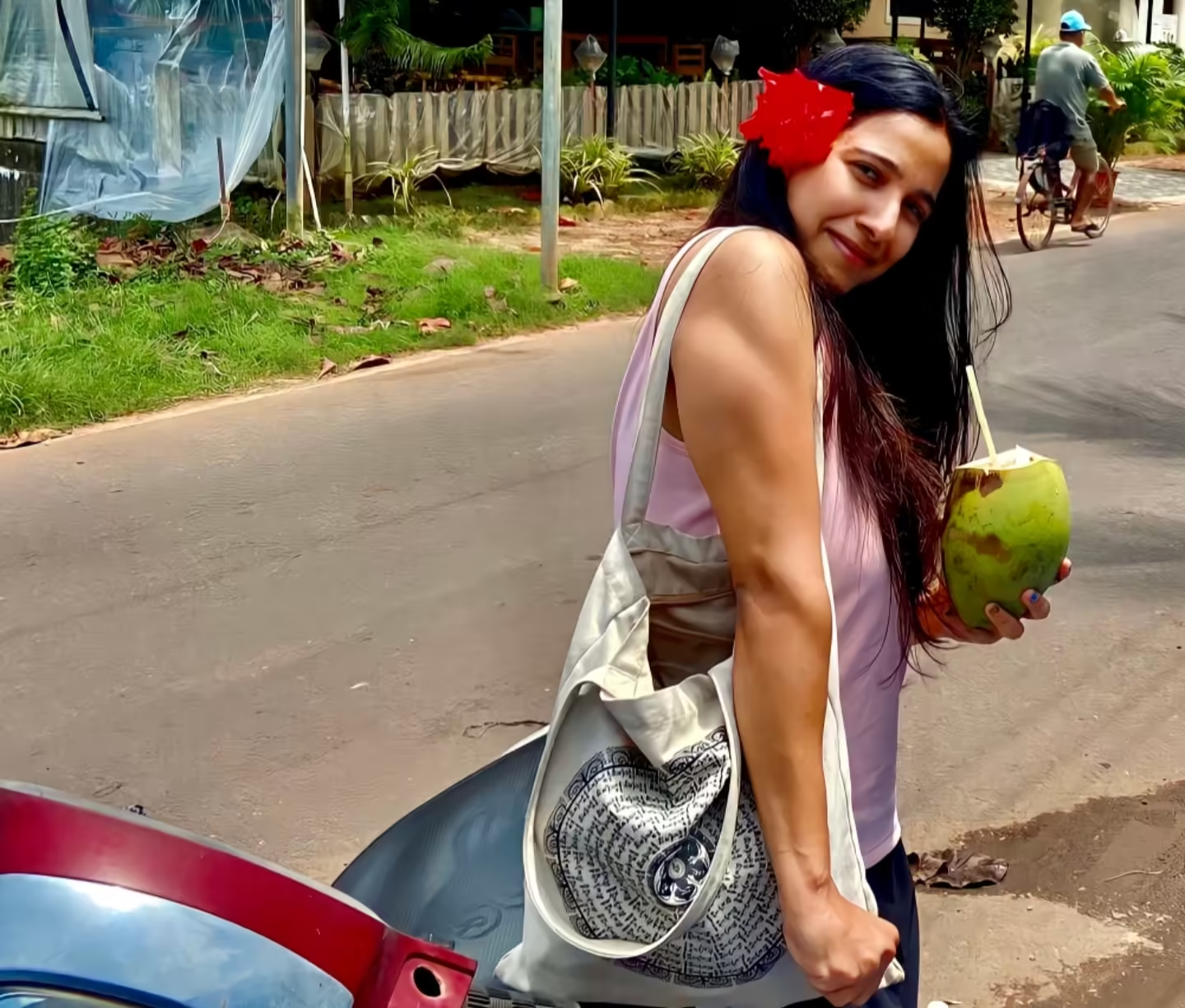Bengaluru-based entrepreneur and CEO Anuradha Tiwari recently found herself at the center of a heated online debate after posting a picture on social media with the caption “Brahmin genes.” The seemingly innocuous two-word caption ignited a discussion on caste-based reservations, the privileges associated with the general category, and the broader implications of caste in Indian society.
Flexing Caste Identity Amidst Calls for Meritocracy
Anuradha’s Brahmin genes post drew attention not just for its content but for the irony it represented. As a vocal critic of caste-based reservations, she has previously argued in favour of a merit-based system.
A pinned post on her X (formerly Twitter) profile from August 2022 reads: “I am a general category student. My ancestors passed me down 0.00 acres of land. I live in a rented house. I couldn’t get admission despite scoring 95%, but my classmate who scored 60% and comes from a well-off family gets admission. And you ask me why I have a problem with reservation?” This post, viewed by over 6.7 million people, highlighted the frustration felt by some in the general category, sparking an intense debate on social media. This Brahmin genes post also got viral.
The CEO Defends Her Views
In the wake of both support and criticism, Anuradha stood firm on her stance about Brahmin genes post , continuing to post about the perceived injustices faced by upper-caste individuals. In one post, she stated, “As expected, a mere mention of the word ‘Brahmin ‘ triggered many inferior beings. Tells a lot about who the real casteists are. Upper Castes get nothing from the system – no reservation, no freebies. We earn everything on our own and have every right to be proud of our lineage. So, deal with it.”
Challenging Historical Narratives
Anuradha, who has also spoken at TEDx, further stirred the pot by claiming that the historical oppression of Brahmins is a myth. She alleged that there is a concerted effort to make Brahmins feel guilty for their existence, a claim that further polarized opinions on social media.
Chetan Bhagat Replied
The Brahmin genes controversy even caught the attention of author Chetan Bhagat, who commented on how such discussions could potentially fragment the consolidated ‘Hindu’ vote bank. Anuradha responded sharply, questioning why Hindu unity is only perceived to be at risk when Brahmins assert their rights.
Social Media Trend Fueled by Caste Dynamics
What began as a simple photograph on X turned into a viral trend, highlighting the complex and often explosive nature of caste in India. The hashtag #BrahminGenes started trending, with many users showcasing their pride in their Brahmin identity. Posts ranged from pictures of men displaying their sacred threads (janeus) to individuals boasting about their Brahmin lineage and dietary habits.
However, the Brahmin genes trend was not without its detractors. Some users pushed back against the overt display of caste pride, questioning the relevance and appropriateness of such posts in a society striving for equality.
Caste and Politics
This online controversy unfolded against the backdrop of ongoing political debates, including Rahul Gandhi’s call for a caste census. The demand aims to ensure that the majority of the population receives its due rights and protections under the Constitution, a move that has further intensified discussions about caste in India.
Caste – A Social and Political Dynamite
The ‘Brahmin Genes’ controversy is a stark reminder of how deeply entrenched caste remains in the Indian psyche. Whether through social media or in the political arena, caste continues to be a powerful and divisive force, capable of igniting fierce debates and shaping the course of national discourse.


[…] CEO Durov’s arrest has intensified the ongoing global debate about the limits of free speech on the internet. On one side are advocates like Durov and Elon Musk, who argue that tech platforms […]
[…] by an Instagram user with the handle @alonaloewen, demonstrates just how unpredictable the world of social media can […]